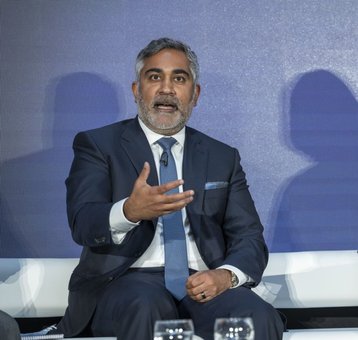AI and data center demand could increase copper demand by 1 million tons by 2030, according to commodity trading company Trafigura.
First reported by Reuters, Trafigura said renewable energy, AI, and efforts to decrease carbon emissions will exacerbate the copper supply deficit.
At the Financial Times Global Commodities Summit, Saad Rahim, chief economist at Trafigura, said: ”On top of the energy transition, we are adding more sources of demand. Power demand from data centers and artificial intelligence is something that analysts have not factored into their forecasts. That could potentially add a further one million tonnes of copper demand”
Rahim added: “Look around commodity markets, we are at $90 per barrel for oil, we’re almost at $9,500 for copper. That’s telling you something about global growth.”
Rahim did not share what he forecasts global copper demand would be in 2030. But global copper demand is expected at around 26 million tons this year, and Reuters reported the copper market deficit will rise to more than 100,000 tons in 2025; up from shortages of 35,000 tons this year.
On Linkedn, Jeremy Weir, CEO of Trafigura, said: “Artificial intelligence and data centers are going to add significantly to copper demand through the need for more transmission lines and grid connections.”
He added that a lack of investment in mines will also contribute to shortages.
A report by Linesight earlier this month also said prices of copper are due to increase this year because of renewable energy sector growth.
China is currently the world’s largest producer and consumer of copper, dominating global supplies of other industrial metals too.
Beata Javorcik, chief economist at the European Bank for Reconstruction and Development, said: “My fear is that escalation of geopolitical tensions is going to slow down the green transition.”
He added that rare metals needed for electric vehicle batteries and the production of other raw materials are dependent on relationships with China.




